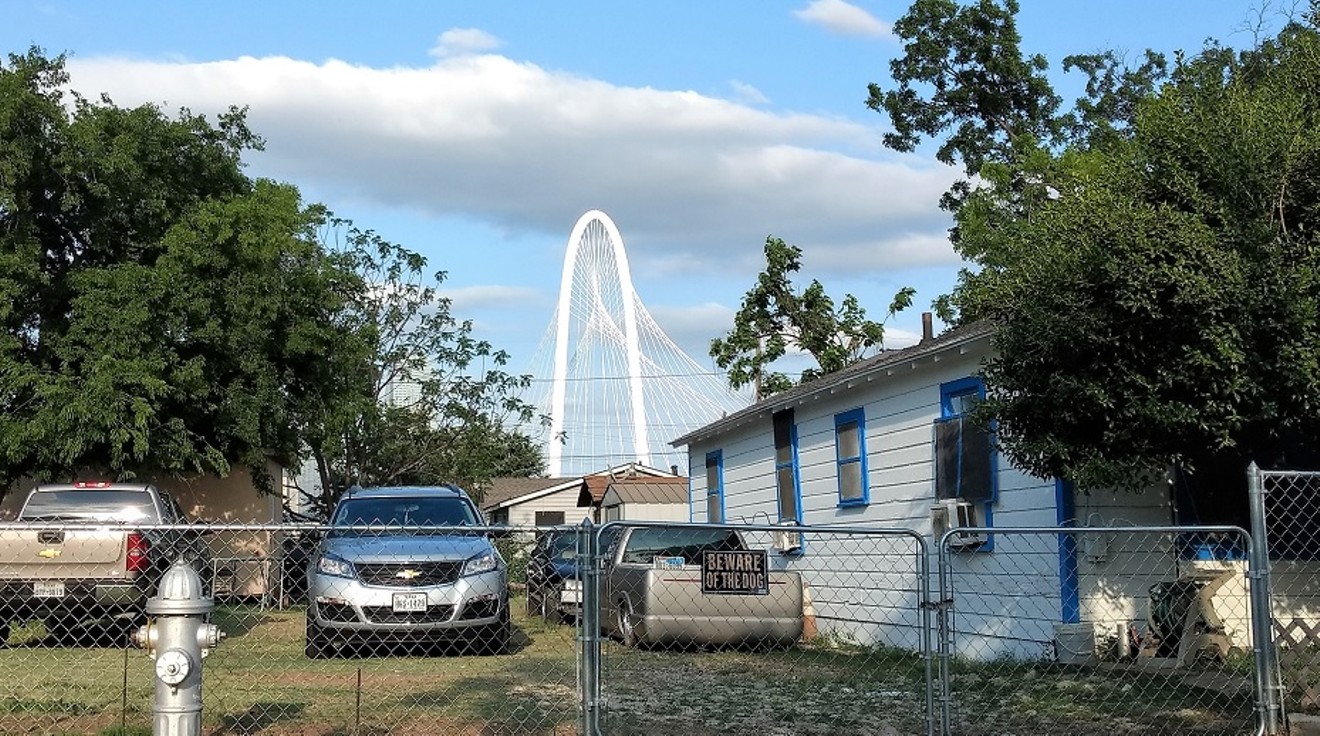The median rate for a two-bedroom Dallas apartment, SmartAsset found, is about $1,324 per month. The report, which is among several SmartAsset produces each year, fits into a nationwide discussion about the increasingly severe issue of Americans being considered "cost burdened," meaning they spend over 30 percent of their monthly income on rent, according to the U.S. Department of Housing and Urban Development.
Just last week, Sen. Kamala Harris, a Democrat from California, introduced a bill that would amend the federal tax code to give tax credits to people who spend more than 30 percent of their monthly income toward rent payments. The Los Angeles Times wrote about it grimly, saying that it had little chance of becoming law, because it posed an additional, expensive burden on taxpayers, and because its efforts target the wrong areas of the rent problem. Nonetheless it is one of the first national efforts to address a growing crisis of people being bogged down by rising rent costs.
Of the top 25 most populated cities in the country, Dallas was the 15th-most expensive (or the 12th least expensive) place to pay rent for a two-bedroom apartment, according to SmartAsset's 2018 report. It was just slightly more expensive than Houston, and cheaper than renting in Austin. In Fort Worth, renters need to make about $48,171 annually to comfortably afford the median $1,124 monthly rent.
The Center of Public Policy Priorities released a study this past spring that showed more than half of all people paying rent in Dallas County are "rent-cost burdened."More than half of all people paying rent in Dallas County are "rent-cost burdened," according to the Center of Public Policy Priorities.
tweet this
In Dallas, the salaries of people at the bottom of the wage scale have fallen, while those who earn the most have seen their earnings increase.The Center for Public Policy Priorities studied Dallas incomes from 2006 to 2015 and found that the incomes by the lowest fifth of households declined 7 percent while those in the top fifth rose by 5 percent.
This is called income inequality, and research analyst Kristie Tingle said Dallas is particularly polarized compared with other parts of the state. Statewide during that period, income in the top fifth of households grew by 5 percent, and the lowest fifth of households grew by 7 percent. That's another way of saying, in Dallas, the rich are getting richer and the poor are getting poorer while the rest of the state trends toward higher incomes.
While SmartAsset didn't explore the nuances of each city it studied, others have. Things get worse along racial and ethnic lines in Dallas. The households with the highest income levels are in predominantly white neighborhoods, while the lowest income households are located in neighborhoods where more black and Latino people live, according to the Center for Public Policy Priorities.
A new study from Zillow found that Dallas' black and Latino residents are more likely to be cost-burdened than their white and Asian counterparts. It found that black residents can afford about 17 percent of the housing options here that require no more than 30 percent of their monthly income. Without being rent-burdened, Latinos can afford about 22 percent of the Dallas housing market; white people have access to 78.5 percent; and Asians 84 percent of the housing market.











